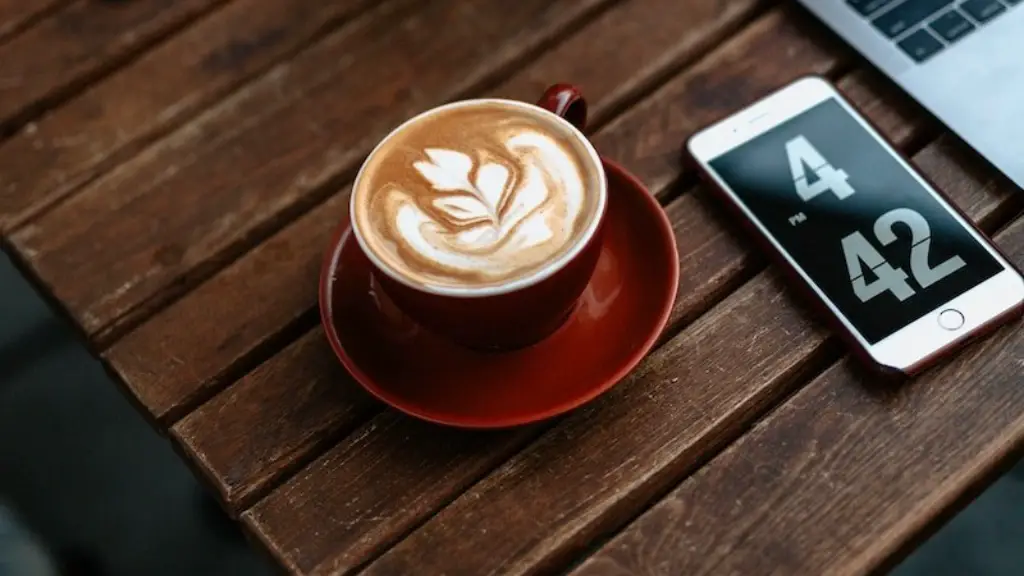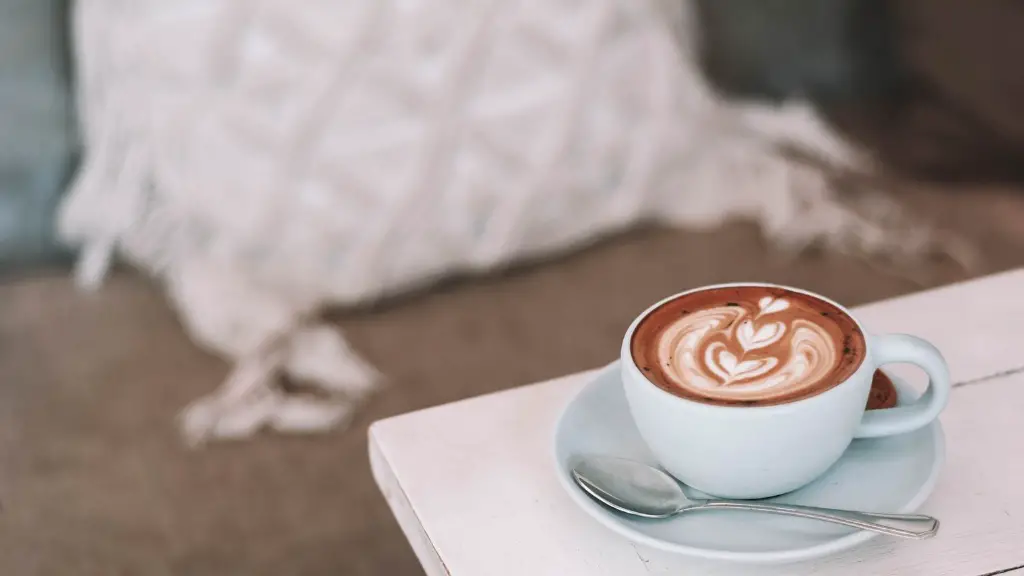Whether drinking coffee makes your breasts hurt is a question many women ponder. The answer isn’t as simple as “yes” or “no”. Research on the subject is limited and inconclusive, but there are several acknowledged possible links between caffeine and breast pain. In this article, we’ll discuss these links in more detail, as well as other potential causes of breast pain and how you can deal with it.
Caffeine and breast pain are often related in studies, due to the fact that caffeine may affect estrogen levels. Estrogen is a hormone associated with the development and growth of breast tissue, and studies suggest that increased amounts of caffeine could cause an increase in breast pain. However, this hasn’t been definitively proven, and other factors like menstrual cycle or diet are also known to affect breast pain.
It has been suggested that caffeine can also affect your blood vessels. When your hormones change, your body can be prone to changes in blood flow, which can cause the breasts to swell. This is a common symptom of menstruation and many women with PMS find that their breasts swell in the days leading up to their period. Therefore, it is possible that caffeine could make this symptom more pronounced.
Caffeine also has an effect on the nervous system, and it’s been suggested that this could lead to breast pain. It is known that caffeine is a stimulant, so it can cause an increase in stress levels which can lead to tension in the breasts and chest. Additionally, caffeine can cause dehydration which can contribute to breast pain.
The amount of caffeine you drink could also be a factor. Studies have found a link between moderate consumption of caffeine-containing foods or drinks and mild breast pain, but the extent to which caffeine consumption influences pain is unclear. It may be beneficial to cut down on caffeine if you find that your breast pain is consistently linked to your consumption.
The effects of caffeine on breast pain are individual and vary widely from one person to the next. Some people may find that their breast pain is exacerbated after drinking coffee, while others may find that it has no effect – or even relieves the pain. If you are suffering from recurring or severe breast pain, it’s best to speak to your doctor who can advise on how to manage it.
Hormonal Changes
Hormonal fluctuations are one of the most common causes of breast pain. During puberty, menstruation and menopause, levels of estrogen and progesterone in your body drop, resulting in physical changes in your breasts. This can cause pain in the chest area, tenderness, swelling and lumpiness. These symptoms occur because the body produces new hormone receptors in the breasts, which can make the tissue more sensitive to changes in your hormones.
In addition to hormonal shifts, breast pain can be caused by physical changes in the body. Pregnancy, for example, can cause a woman’s breasts to swell due to hormonal changes and the production of milk. Some women may notice that their breasts swell and become tender in the days leading up to their period. If your breasts swell at any time, it is likely to be caused by hormonal changes and should go away as your hormones regulate again.
Other physical activities can also cause breast pain. Exercise, like running or jogging, can cause friction and movement of the breasts which can cause pain. Wearing the wrong bra size can cause pain and discomfort when exercising or walking. A poorly-fitting bra can also cause pain at rest, as it puts pressure on some points of the breasts.
Finally, certain health conditions can cause breast pain. Breast cysts are fluid-filled sacs in the breasts and can cause discomfort. They usually develop during puberty and can be painful during menstruation and before menopause. Fibrocystic breast changes can also cause lumpiness and tenderness in the breasts, as well as feeling pain or discomfort in the underarm area.
Managing Breast Pain
If you experience pain in your breasts, there are several steps you can take to manage it. One of the most important things you can do is to wear the right bra size – a bra that is comfortable, supportive and properly fitted.
You should also practice healthy habits like exercise, eating a balanced diet and quitting smoking, if applicable. Getting regular exercise and eating a healthy, balanced diet will help to regulate your hormones and keep them within the normal range. These healthy habits can also reduce stress and help with managing any other conditions you may have that contribute to breast pain.
Finally, it can help to use home remedies that target the underlying cause of your pain. For example, if you are experiencing cystic breast pain, you can apply a hot or cold compress to relieve the discomfort. You can also take a daily multivitamin to help regulate hormone production, or try a pain reliever like ibuprofen or aspirin if your pain is severe.
Other Causes of Breast Pain
Breast pain can be caused by several factors ranging from lifestyle choices to underlying health conditions. These include drinking alcohol, smoking, high levels of stress, certain medications, tight-fitting clothes, sleeping posture and sitting in a reclined position for extended periods of time.
Stress can also be a major contributing factor to breast pain. Stress hormones can cause the body to become tense and affect the blood flow to the breasts, which can lead to swelling and pain. Reducing stress by practicing relaxation techniques or engaging in activities that make you feel calm, such as yoga or meditation, can help to reduce breast pain.
If your lifestyle is not the cause of your breast pain, there may be an underlying health condition. Breast pain could be a sign of conditions such as mastitis, breast cancer or an infection in the breast. While these conditions are rare, it is important to speak to your doctor if you experience any worrying symptoms associated with your breast pain.
Conclusion
In conclusion, does drinking coffee make your breasts hurt? The answer is not a simple one, and it is largely personal to the individual. Several factors can contribute to breast pain, including caffeine consumption, hormonal changes, physical activities and underlying health conditions. If you are experiencing consistent or severe breast pain, it is best to speak to a doctor. Additionally, you should make healthy lifestyle choices and practice relaxation techniques that may help to reduce stress.




